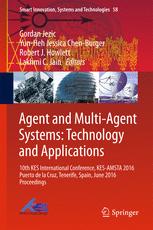

Most ebook files are in PDF format, so you can easily read them using various software such as Foxit Reader or directly on the Google Chrome browser.
Some ebook files are released by publishers in other formats such as .awz, .mobi, .epub, .fb2, etc. You may need to install specific software to read these formats on mobile/PC, such as Calibre.
Please read the tutorial at this link. https://ebooknice.com/page/post?id=faq
We offer FREE conversion to the popular formats you request; however, this may take some time. Therefore, right after payment, please email us, and we will try to provide the service as quickly as possible.
For some exceptional file formats or broken links (if any), please refrain from opening any disputes. Instead, email us first, and we will try to assist within a maximum of 6 hours.
EbookNice Team

Status:
Available0.0
0 reviewsThe modern economy is driven by technologies and knowledge. Digital technologies can free, shift and multiply choices, often intruding on the space of other industries, by providing new ways of conducting business operations and creating values for customers and companies. The topics covered in this volume include software agents, multi-agent systems, agent modelling, mobile and cloud computing, big data analysis, business intelligence, artificial intelligence, social systems, computer embedded systems and nature inspired manufacturing, etc. that contribute to the modern Digital Economy.
This volume highlights new trends and challenges in agent, new digital and knowledge economy research and includes 28 papers classified in the following specific topics: business process management, agent-based modeling and simulation, anthropic-oriented computing, learning paradigms, business informatics and gaming, digital economy, and advances in networked virtual enterprises. Published papers were selected for presentation at the 10th KES Conference on Agent and Multi-Agent Systems: Technologies and Applications (KES-AMSTA 2016) held in Puerto de la Cruz, Tenerife, Spain.
Presented results would be of theoretical and practical value to researchers and industrial practitioners working in the fields of artificial intelligence, collective computational intelligence, innovative business models, new digital and knowledge economy and, in particular, agent and multi-agent systems, technologies, tools and applications.